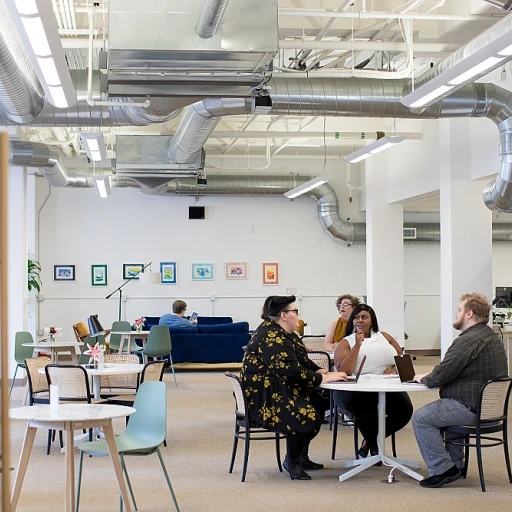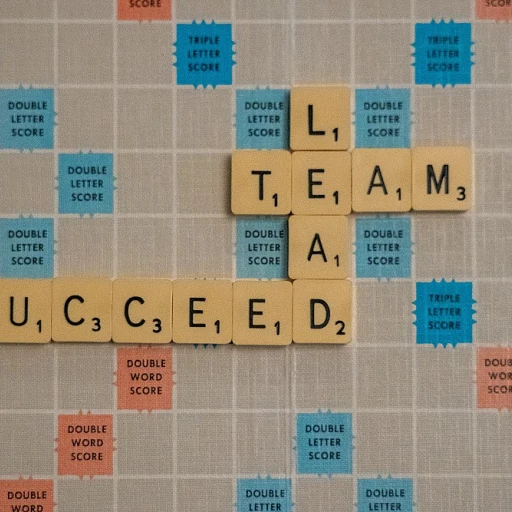
The Evolution of Talent Assessments
Unraveling the History of Talent Assessments
The landscape of talent assessments has undergone significant transformations over the decades. Originally, businesses relied heavily on traditional interviews and basic tests to gauge a candidate's potential. These early methods primarily focused on basic intelligence and personality characteristics to determine if a candidate would fit a particular role. Interview panels were the norm, and subjective opinions often dominated decision-making processes. However, as organizations began to understand the limitations of these rudimentary approaches, the demand for more insightful, data-driven assessment tools surfaced. Cognitive ability tests, personality assessments, and job simulations were integrated to imbue the process with greater objectivity and precision. These innovations helped paint a comprehensive picture of a candidate's capabilities, showcasing not only their present skills but also potential for development. Incorporating standardized forms of testing aimed to streamline the hiring process and bring to light insights otherwise overshadowed by personal biases. Such developments paved the way for a surge in advanced assessment methods that complemented traditional judgment with empirical data. It soon became clear that robust tools and methods were necessary to distinguish high potential individuals poised for leadership development. As businesses sought to refine their hiring processes, the emergence of sophisticated assessment methods like job-specific simulations and work samples revolutionized the hiring landscape. These tools enabled organizations to navigate complex hiring processes with a keen eye on relevant skills and behavioral traits essential for success. The quest for effective talent management fostered an environment where systematic examination of skills and abilities became integral to finding candidates who could not only perform but also thrive in evolving business environments. As these advancements continue, organizations must remain vigilant in understanding how data, technology, and innovation contribute to shaping the hiring process. For additional insights on leveraging AI in employee development and continuing to evolve your HR strategies, explore evaluating employee development with AI coaching as part of this ongoing transformation.Technology's Role in Talent Assessments
The Impact of Technology on Talent Assessments
In the ever-evolving landscape of talent assessments, technology plays a pivotal role in transforming how organizations evaluate and acquire talent. By leveraging advanced tools and data-driven techniques, companies can streamline their hiring processes, delivering more effective and accurate results.
One significant advantage of technology in the talent assessment space is the ability to utilize diverse assessment methods. Organizations can now use a combination of cognitive ability tests, personality assessments, and job-specific simulations to gauge a candidate's potential and skills comprehensively. These tools help in identifying behavioral and personality traits that align with the company's core values and culture, enhancing the overall candidate experience.
Moreover, technology facilitates the integration of sophisticated assessment tools that provide valuable insights into a candidate's leadership potential and performance capabilities. Business leaders can harness the power of data to assess high-potential candidates more efficiently, leading to more informed hiring decisions and effective succession planning.
An effective talent management strategy involves utilizing technology to create personalized assessments that cater to the specific needs of the role and the organization. Assessment tools powered by artificial intelligence can adapt in real-time to a candidate's responses, ensuring that the assessment process is not only efficient but also fair and unbiased.
Job simulations and work samples have become invaluable in today's hiring processes. Technology enables these assessments to be conducted virtually, allowing candidates to demonstrate their abilities in realistic scenarios. This approach not only aids in the assessment of skills but also provides insights into how candidates might perform in actual job roles.
However, it is essential to address the ethical considerations and challenges posed by technology-driven assessments, which will be explored further. Balancing technological advancements with human insights ensures a holistic approach to talent assessment, propelling organizations towards better hiring outcomes.
For more on technology's impact on communication and leadership, check out enhancing leadership communication through innovative newsletters.
Personalization in Talent Assessments
Personalized Approaches in Talent Assessments
In today's competitive job market, organizations are keen on identifying candidates with the right skills and potential to ensure a successful hiring process. A growing interest in the personalization of talent assessments underscores the need for companies to align assessment tools with specific job roles and organizational culture. Personalized talent assessments allow organizations to tailor their assessment methods to meet job-specific requirements. This individualized approach can include cognitive ability and personality tests that offer insights into a candidate's potential, behavioral traits, and performance capabilities. For example, job simulations and work samples are increasingly being used to mimic real-world tasks that a candidate would face in their potential role. This not only enhances the candidate experience but also provides a more accurate picture of their skills and abilities. Leadership development remains a critical focus of talent management, with assessments tailored to identify high potential employees. By concentrating on succession planning, organizations can nurture leadership qualities through personalized personality assessments that highlight crucial personality traits necessary for future roles. Customized assessments help businesses retain valuable insights into candidate profiles that align with long-term talent management strategies. Moreover, assessment tools are being integrated into broader employee development programs, fostering a continuous feedback loop that aids in personal and professional growth. By using data-driven insights from these assessments, companies can adapt their development strategies to support employees in their career trajectories and improve overall organizational performance. For businesses looking to leverage personalization in talent assessments, understanding these benefits and integrating them with existing evaluation processes is vital. Organizations that succeed in this respect often see a marked improvement in hiring outcomes and workforce readiness, leading to a more dynamic and agile team. To delve further into how companies are enhancing employee engagement with innovative benchmarks, reference our discussion on intranet benchmarks. This will provide a comprehensive view of the synergy between personalized assessments and employee engagement strategies.Integrating Talent Assessments with Employee Development
Building a Cohesive Plan with Employee Development
The integration of talent assessments with employee development strategies is rapidly becoming an essential component in modern organizations. A key advantage of seamlessly connecting these processes is the ability to align individual capabilities with the overall organizational goals, thereby enhancing both the candidate experience and the effectiveness of the hiring process. One approach organizations are adopting is the use of data-driven insights from assessments to tailor development programs. This methodology leverages assessment tools like cognitive ability and personality tests to pinpoint areas where employees show high potential. By focusing on the identified strengths and weaknesses, businesses can craft job-specific training and work samples that suit the unique needs of each team member. Organizations are utilizing tools for:- Personalization: Use of assessment results to create bespoke development plans that address individual skills gaps and foster growth.
- Succession Planning: Identifying future leadership potential within the workforce by regularly evaluating employees' performance and behavioral traits.
- Leadership Development: Leveraging assessments to design initiatives that promote leadership qualities, combining leadership assessment results with targeted training methods.













